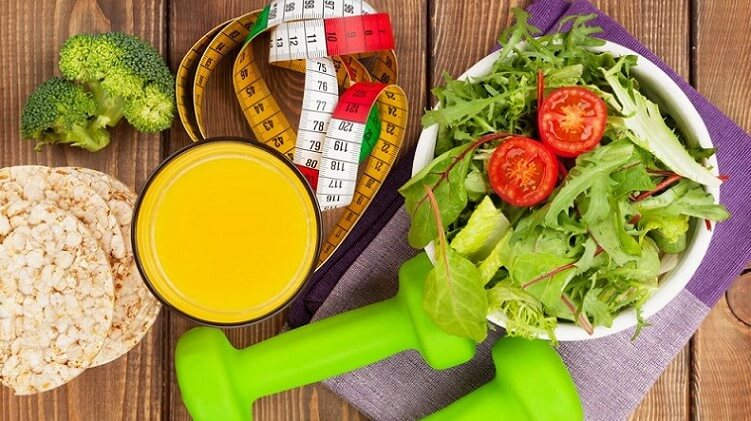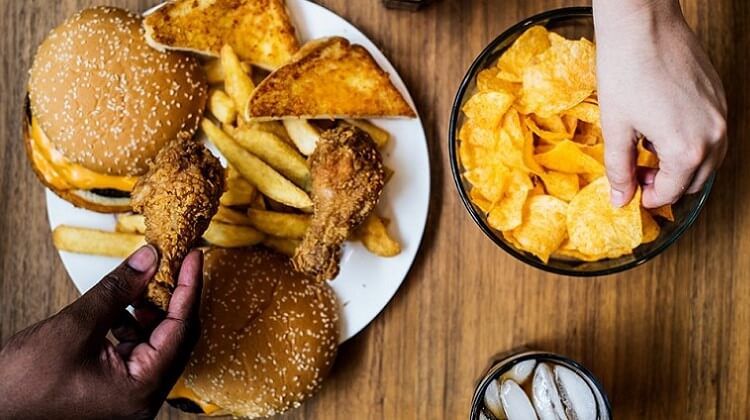Losing weight is a multifaceted process requiring a commitment to a healthy diet, regular exercise, and other behavioral changes. But over the years, many of us have stuck with some common misconceptions about losing weight. In this post, we list and debunk six of those diet and exercise myths making the rounds.
Separating Diet and Exercise Myth from FACT
Losing weight isn’t easy, but it doesn’t have to be a difficult or overwhelming process either. Anyone can lose weight if they have the right information and approach. However, the process can be made even more challenging by the widespread prevalence of myths and misunderstandings related to weight loss.
Crash diets, severe calorie restriction, and skipping meals are often touted as the best ways to lose weight, but research shows they actually increase the risk of illness and are not effective over the long term.
The reality is that losing weight is a multifaceted process that calls for a commitment to a healthy diet, regular exercise, and other healthy habits.
Knowing the facts about weight loss will help you make educated choices and create a long-term strategy.
Below are six diet and exercise myths that you may have heard about and probably believed before now.

Low-Fat Diets Are Key To Weight Loss
It stands to reason that a low-fat food item would aid in weight loss. Well, this is actually incorrect; the total kilojoules are more important for weight loss rather than whether you consume low-fat content food or not. So only focusing on fat content obscures very important details.
Very few low-fat foods were produced commercially prior to the 1980s. If you were prescribed a low-fat diet, you could get through a shopping trip at the supermarket in a flash. You would need to stock up on skim milk, a wide variety of fresh produce, cottage cheese, and fish. It goes without saying that you lost weight and got bored very rapidly.
Low-fat foods have been twisted in people’s minds to mean “eat more”. because of this misconception. So instead of lingering over a tiny piece of sponge cake, which would have about 600 kilojoules (150 calories), I can wolf down a muffin the size of a small plate that has as many as 2,000 kilojoules (500 calories) because the label said it was low fat.
A food’s total kilojoule count will still be high even if it has a low fat content. So, what does the proof indicate? The three macronutrients—protein, fat, and carbohydrate—are the building blocks of all foods. In terms of kilojoules, these are all good options. There are 17 kilojoules (kJ) in 1 gram of protein, 16 kJ in 1 gram of carbohydrates, and 37 kJ in 1 gram of fat.
Since fat contains the most kilojoules, it stands to reason that those who consume a diet low in fat will consume a correspondingly smaller number of calories and thus lose weight. Not so.
If eating healthy is your goal, then it is best that you buy food items that even your grandparents would consider as having a low-fat content. You should increase your intake of these foods, as well as whole grains, fish, or vegetarian sources of protein like baked beans, as well as low-fat dairy products. In addition, you should stay away from low-fat processed and packaged goods.
You can still lose weight even if you eat more fat than you would on a low-fat diet, but you’ll have to pay closer attention to the kilojoule content of the foods you eat. The total number of kilojoules you consume is more important than the fat content of your food when it comes to weight loss.
Cheat Days Ruin A Good Fitness Regime
It is worth noting that cheat days; which are days when you take time off from exercising or dieting – can help keep a diet or exercise program functional provided the cheat days are done in moderation.
In most cases, only people who follow a particularly strict diet or exercise routine can justify taking a “cheat day” every once in a while.
The key is to learn the distinction between shocking your body in a smart, healthy way and binge eating, with the latter being a terrible habit and really doesn’t help in your desire to lose weight. You need a nuanced understanding of dieting and muscle building, as with most things, to make the most of cheat days.

Skipping Dinner Leads To Weight Loss
Skipping meals can have the opposite effect of what you want and make it harder to lose weight.
Skipping dinner will cause your metabolism to slow down as your body enters “starvation mode” and in effect your body begins conserving energy.
Skipping dinner can cause you to overeat at other times during the day, which can negate any weight loss goal you might have achieved.
Crash Diets Work Best For Weight Loss
A quick drop in weight from a crash diet is not likely to be maintained. Sometimes they can even cause long-term weight gain.
The primary issue is that it’s extremely challenging to stick to such a restrictive diet. Because of the restricted nature of some crash diets, you may not be getting enough of certain vitamins and minerals.
As a result of this, you may find yourself yearning for high-fat, high-sugar foods even though they aren’t good for you as they can cause you to gain weight.
A Longer Workout Gives Better Results
This simply is not the case. Spending a longer period of time exercising will not necessarily offer you better weight loss results. It is better to workout for short spells at a time, but over a more consistent and sustained length of time.
In practice, this would mean finding ways to incorporate more exercise into your daily schedule.
Adults need at least 150 minutes of physical activity per week (like brisk walking or cycling), with more time spent exercising recommended for those who are overweight.
If you burn more calories than consumed, you are on your way to achieving your weight loss desires.
Either decreasing your caloric intake or increasing your physical activity will help, but the best strategy will be to do both.

Workouts Offset Bad Eating Habits
A poor diet cannot be compensated for by regular exercise. You won’t get a reward just for working out.
While exercise is the single most important thing you can do for your health, it only accounts for or contributes to about 20%-30% of your desire to lose weight.
Look at it this way – about 70% to 80% of your weight loss will ultimately be due to what you eat and drink, while only 20% to 30% of your weight loss will be due to your exercise routine.
In Conclusion
There are many more myths about diet and exercise in relation to weight loss that were not mentioned here and some of you probably believe to be fact.
Well, our candid advice to you is to seek the assistance of a qualified dietician and trainer if you are uncertain about any “common knowledge” ideas about your diet, exercise and weight loss desires.
You can start today by taking advantage of our free coaching here.


